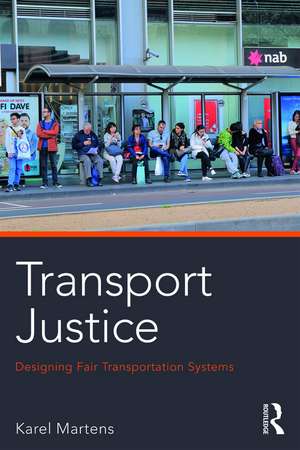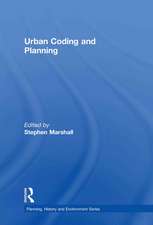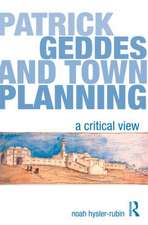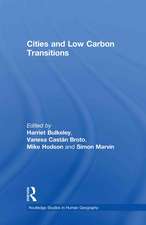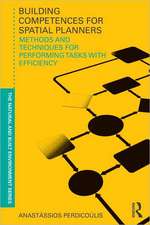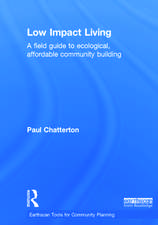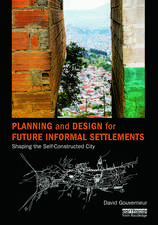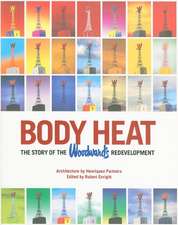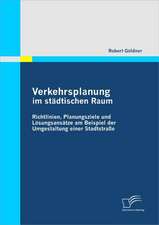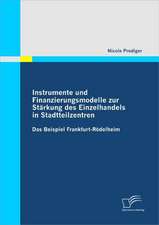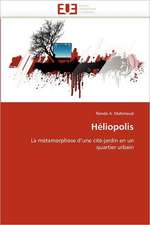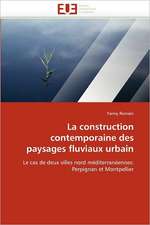Transport Justice: Designing fair transportation systems
Autor Karel Martensen Limba Engleză Paperback – 5 iul 2016
There are far-reaching consequences of this approach, with some enjoying the fruits of the improvements in the transport system, while others have experienced a substantial deterioration in their situation. The growing body of academic evidence on the resulting disparities in mobility and accessibility, have been paralleled by increasingly vocal calls for policy changes to address the inequities that have developed over time. Drawing on philosophies of social justice, Transport Justice argues that governments have the fundamental duty of providing virtually every person with adequate transportation and thus of mitigating the social disparities that have been created over the past decades.
Critical reading for transport planners and students of transportation planning, this book develops a new approach to transportation planning that takes people as its starting point, and justice as its end.
| Toate formatele și edițiile | Preț | Express |
|---|---|---|
| Paperback (1) | 385.81 lei 3-5 săpt. | +19.16 lei 7-13 zile |
| Taylor & Francis – 5 iul 2016 | 385.81 lei 3-5 săpt. | +19.16 lei 7-13 zile |
| Hardback (1) | 1326.99 lei 6-8 săpt. | |
| Taylor & Francis – 8 iul 2016 | 1326.99 lei 6-8 săpt. |
Preț: 385.81 lei
Nou
Puncte Express: 579
Preț estimativ în valută:
73.82€ • 77.08$ • 61.10£
73.82€ • 77.08$ • 61.10£
Carte disponibilă
Livrare economică 14-28 martie
Livrare express 28 februarie-06 martie pentru 29.15 lei
Preluare comenzi: 021 569.72.76
Specificații
ISBN-13: 9780415638326
ISBN-10: 0415638321
Pagini: 256
Ilustrații: 37
Dimensiuni: 152 x 229 x 29 mm
Greutate: 0.36 kg
Ediția:1
Editura: Taylor & Francis
Colecția Routledge
Locul publicării:Oxford, United Kingdom
ISBN-10: 0415638321
Pagini: 256
Ilustrații: 37
Dimensiuni: 152 x 229 x 29 mm
Greutate: 0.36 kg
Ediția:1
Editura: Taylor & Francis
Colecția Routledge
Locul publicării:Oxford, United Kingdom
Public țintă
Postgraduate and UndergraduateCuprins
Part 1: Introduction
1. Introduction
2. Fairness in traditional transportation planning
Part 2: Philosophical explorations
3. Setting the stage
4. The social meaning of transportation
5. Accessibility as a primary good?
6. Insuring for lack of accessibility
7. Defining sufficient accessibility
Part 3: A new approach to transportation planning
8. Transportation planning based on principles of justice
9. Case study: The fairness of Amsterdam's transportation system
10. Seeking transportation justice
1. Introduction
2. Fairness in traditional transportation planning
Part 2: Philosophical explorations
3. Setting the stage
4. The social meaning of transportation
5. Accessibility as a primary good?
6. Insuring for lack of accessibility
7. Defining sufficient accessibility
Part 3: A new approach to transportation planning
8. Transportation planning based on principles of justice
9. Case study: The fairness of Amsterdam's transportation system
10. Seeking transportation justice
Notă biografică
Karel Martens is Associate Professor at the Faculty of Architecture and Town Planning, Technion – Israel Institute of Technology (Haifa, Israel) and at the Institute for Management Research, Radboud University (Nijmegen, the Netherlands). He also holds the Leona Chanin Career Development Chair at the Technion.
Recenzii
Named one of Book Authority's 100 Best Transportation Books of All Time
"For academics, this book presents a long-overdue discussion on transport justice from a philosophical perspective. For practitioners, the rules developed in the book may serve as guidance and a starting point for establishing a transportation planning process that is more fair and inclusive. For policymakers, this book sheds light on the shortcomings of current financing, taxation, and project selection schemes and assists them in making informed decisions when implementing interventions in the transportation system." -Journal of the American Planning Association
"In Transport Justice Martens considers many dimensions of fairness in society’s provision of physical accessibility, demonstrating clearly how concepts of justice developed by renowned thinkers like Rawls and Dworkin can be extended to, and quantified in, the assessment of urban transport systems to improve the process of regional transport planning." Martin Wachs, Distinguished Professor Emeritus, University of California Los Angeles, USA
"Transport Justice is an exceptionally important and original addition to urban studies literature. Combining theoretical and practical insights, it shows the way in which transportation policy, usually a technical domain focused on efficiency, can be a significant contributor to equity and sets up principles for evaluating transportation systems in terms of the distribution of benefits." Susan S. Fainstein, Author, The Just City
"Karel Martens has written an insightful, thoughtful book that will transform the field of equity analysis of transportation systems. By focusing on accessibility and establishing new thresholds for analysis, he presents a new analytical framework that focuses on justice." Deb Niemeier, Ph.D., Department of Civil and Environmental Engineering, University of California Los Angeles, USA
"Karel Martens observes that justice principles play a key role in the domains of housing, health care and education. In contrast, the domain of transport is dominated by one notion: efficiency, efficiency, efficiency. The choice of subject is therefore in itself already a revolution in our thinking about mobility... This book caters for readers who realize that scientific and societal progress benefits mostly from asking the right questions, even if sometimes there are no ready-made answers." Kris Peeters, Eindelijk, de essentie!
"In Transport Justice, Martens addresses a large, informed and educated public, targeting both transport specialists, theoreticians and practitioners, as well as students and activists. It covers a very wide range of transportation planning issues. (…) All those working on transportation justice issues will benefit from reading the first two and last three chapters, which will certainly renew the debate about transportation fairness." -Fannie Bélanger-Lemay, Urbanités
"For academics, this book presents a long-overdue discussion on transport justice from a philosophical perspective. For practitioners, the rules developed in the book may serve as guidance and a starting point for establishing a transportation planning process that is more fair and inclusive. For policymakers, this book sheds light on the shortcomings of current financing, taxation, and project selection schemes and assists them in making informed decisions when implementing interventions in the transportation system." -Journal of the American Planning Association
"In Transport Justice Martens considers many dimensions of fairness in society’s provision of physical accessibility, demonstrating clearly how concepts of justice developed by renowned thinkers like Rawls and Dworkin can be extended to, and quantified in, the assessment of urban transport systems to improve the process of regional transport planning." Martin Wachs, Distinguished Professor Emeritus, University of California Los Angeles, USA
"Transport Justice is an exceptionally important and original addition to urban studies literature. Combining theoretical and practical insights, it shows the way in which transportation policy, usually a technical domain focused on efficiency, can be a significant contributor to equity and sets up principles for evaluating transportation systems in terms of the distribution of benefits." Susan S. Fainstein, Author, The Just City
"Karel Martens has written an insightful, thoughtful book that will transform the field of equity analysis of transportation systems. By focusing on accessibility and establishing new thresholds for analysis, he presents a new analytical framework that focuses on justice." Deb Niemeier, Ph.D., Department of Civil and Environmental Engineering, University of California Los Angeles, USA
"Karel Martens observes that justice principles play a key role in the domains of housing, health care and education. In contrast, the domain of transport is dominated by one notion: efficiency, efficiency, efficiency. The choice of subject is therefore in itself already a revolution in our thinking about mobility... This book caters for readers who realize that scientific and societal progress benefits mostly from asking the right questions, even if sometimes there are no ready-made answers." Kris Peeters, Eindelijk, de essentie!
"In Transport Justice, Martens addresses a large, informed and educated public, targeting both transport specialists, theoreticians and practitioners, as well as students and activists. It covers a very wide range of transportation planning issues. (…) All those working on transportation justice issues will benefit from reading the first two and last three chapters, which will certainly renew the debate about transportation fairness." -Fannie Bélanger-Lemay, Urbanités
Descriere
Transport Justice develops a new paradigm for transportation planning based on principles of justice.
